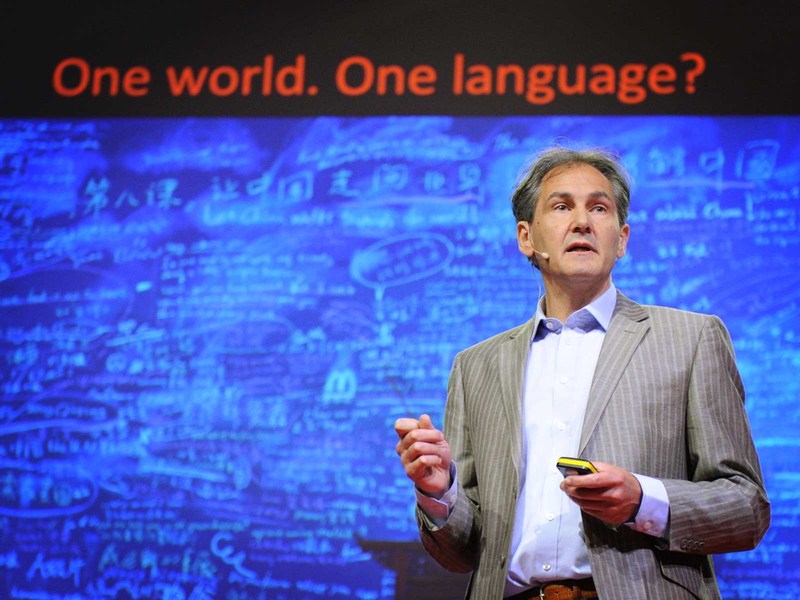Mark Pagel – how language transformed humanity
Mark Pagel is an evolutionary biologist based in the United Kingdom. We’re attracted to his conviction and the humanism on which his theory appears to be based.
Key turns of phrase, ideas and theories we took away from this TED talk include:
- speech as “discrete pulses of sound” used to transfer ideas via language from human to human;
- language as “genes talking” – e.g. a baby hollering to its mother to communicate hunger seen, from an evolutionary point of view, as a mechanism by which the baby gets food to come to him or her;
- language as potentially subversive, as reflected in the story of the Tower of Babel and in laws about censorship, defamation, profanities in public, as well as taboo words;
- the shocking reality that people, throughout history, have been imprisoned or even killed over a “puff of air emanating from [their] mouths”;
- humans unique ability to learn new skills by watching and copying others, to accumulate knowledge and to benefit from other people’s inventions and ideas – what anthropologists call “social learning”;
- social learning as “visual theft”, and the dilemma humans faced as a result, either to:
- retreat into small groups to protect their ideas; or
- co-operate and exchange ideas through language;
- about 200,000 years ago, humans elected to co-operate and this triggered an explosion in the spread of humanity across the globe in parallel with the development of languages;
- even the simplest acts of exchange require language;
- there may be 8,000 active languages on earth. Paradoxically, some of the greatest diversity of languages occur when people are the most packed together, e.g. in Papua New Guinea;
- individual languages may have evolved to allow groups to “ring themselves off” from nearby outsiders to defend the group’s intellectual property;
- that the European Union spends more than $1 billion on translating the 23 official languages used by the 27 member states;
- whether, in the age of Facebook and globalisation, we can afford different languages, and whether a single language is inevitable; and
- genes don’t of themselves explain the development of language, although important research into genes like FoxP2 and its potential role in the fine oral motor control needed for speech continues.

Hi there, I’m David Kinnane.
Principal Speech Pathologist, Banter Speech & Language
Our talented team of certified practising speech pathologists provide unhurried, personalised and evidence-based speech pathology care to children and adults in the Inner West of Sydney and beyond, both in our clinic and via telehealth.








